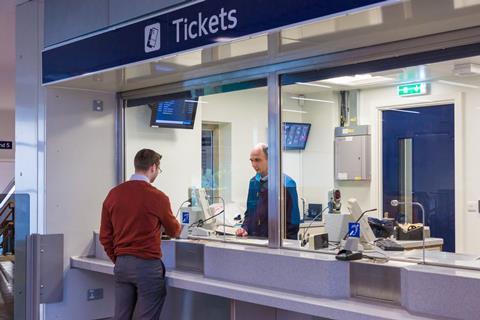
UK: Public consultation has begun over plans to close the majority of station ticket offices in England, with one senior industry insider telling Rail Business UK ‘the whole point of the consultation is to take onboard formally any objections on a station-by-station basis. Nobody is thinking that the plans that go in will be the plans that come out at the other end, and that is why it is important for passengers to give their opinions.’
Formally announcing the widely trailed plan on July 5, the Rail Delivery Group said that ‘where adopted, the proposals will see ticket office staff transitioning to multi-skilled “customer help” roles — already in place in many parts of the network — where they would be better able to give advice about the best and cheapest fares, advise on journey planning and support customers with accessibility needs.
‘The changes would mean a more visible and accessible staff presence across the network as a whole at stations during staffed hours, on ticket concourses and on platforms’, RDG added.
Although a small number of operators do have station staff able to sell tickets using mobile devices, there is no general plan to see staff on stations continuing to sell tickets. One industry insider commented that ‘we are trying to migrate people to other forms of ticketing so just shifting them from a window to a line mid-concourse or on a platform isn’t really progress’.
The process would be rolled out over around three years, giving time for any measures required as a result of the consultation process to be put in place.
RDG has made a number of commitments ahead of any changes, stating that:
- across the network as a whole, there will be more staff available to give face to face help to customers out in stations than there are today;
- customers will never have to travel out of their way to buy tickets;
- those with accessibility needs will always be supported;
- all rail staff will be treated fairly and their new roles will be more engaging.
‘If a customer is unable to buy a specific ticket before boarding the train because it was unavailable at the station, they would be able to buy one during their journey, at a ticket office en route, or at their destination’, the trade body insisted.
Consultation process
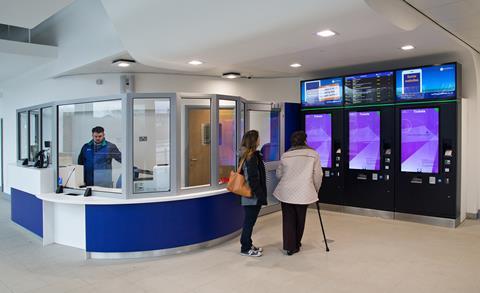
The announcement follows a significant fall in ticket sales at stations, accounting for 12% of sales today compared to 82% when current requirements for ticket offices were created as privatisation began in the mid-1990s.
RDG said ‘stations without ticket offices already make up 43% of those operating across the UK, with a further 40% being staffed part-time’. However, the consultation only applies to stations in England managed by operators with contracts under DfT control; ticket offices at Transport for Wales-managed stations in England, such as Hereford and Chester, will see no change, and nor will the Merseyrail network.
The train companies affected will notify independent watchdogs Transport Focus and London TravelWatch of their proposals, and post notices at stations advising passengers of them. Passengers will then be invited to write to the watchdogs with their views during the 21-day public consultation, and the watchdogs will be able to raise objections to the proposals with the operator concerned. It is anticipated that the results will be made public.
The process is complicated by the lack of a central point for passengers to give feedback; comments are being requested for individual train operators or even individual stations, which may make an overall assessment of public feelings more difficult to assess.
Government calls the shots
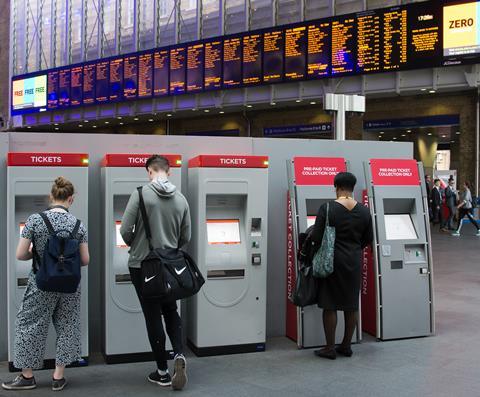
Rail Business UK understands that the decision to start the ticket office closure process has come directly from government.
The Treasury was initially calling for speedy closures and the removal of the majority of station staff. As a result, the consultation is being welcomed by train operating company managers who are privately angry that they have been asked to make the announcements in a way that suggests operators have initiated the process.
‘When DfT wanted the closures to just happen, the industry persuaded the department to agree that it needed to know what mitigations should be in place. So these are the baseline proposals, and through consultation we can find out where there are issues and get proper support for those mitigations. Then, when actual proposals are put forward there will be a clear line to the Treasury that will explain what needs to be spent to enable the changes to happen.’
Staff changes
Rail Business UK understands that train operators had wanted to make the changes with the full agreement of the trade unions in a process that would have included improved pay and significant extra commitments about job security. However, the failure to reach agreement in the pay disputes put an end to this plan.
An RDG insider commented that the government ‘has instructed us to go forward on things that can be implemented without agreement from the unions. The Prime Minister has said he wants this to happen and it was announced at the last Conservative party conference.
‘Fundamentally the industry has decided that the RMT national executive has misunderstood the intentions, so it has been decided that, as RMT seems unlikely to put anything to its members, the way forward is to do things that can be done without needing agreement first.’
Options for staff will include ‘moving to a new skilled role and comprehensive re-training and re-skilling’, with operators to ‘continue to engage constructively with unions at a local level to manage the transition in a way that works best for staff’, the source explained.
It is understood that whilst these changes can be made without union agreement, the process creates a dilemma for the labour representatives. This is because the new roles cannot be created without union agreement, but staff can be made redundant if their existing roles cease to exist. Any refusal to engage with the job changes could lead to members losing their jobs, while full engagement would see them continuing to be employed, possibly with a substantial pay increase.
It is expected that a voluntary severance scheme will be set up for staff unwilling to move to the new roles; ‘nobody is talking about compulsory redundancies’, an insider said.
Ticket offices are expected to remain open at the busiest stations and interchanges, selling the full range of tickets while the transition takes place.
Product range
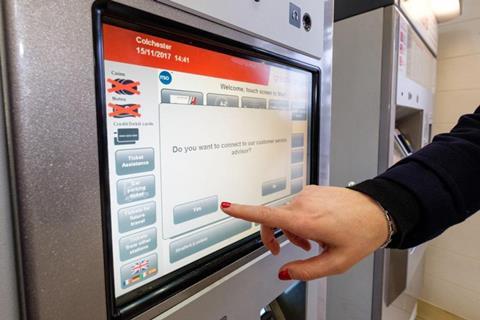
RDG said ‘an estimated 99%’ of all transactions made at ticket offices last year can be made at ticket vending machines or online, and TVMs would be upgraded where needed.
Asked by Rail Business UK about the inability of TVMs to sell products such as Rovers and Rangers, an RDG insider said ‘we are going to have to sort that. There are products that aren’t on TVMs and we’re going to have to migrate them.’ They added that this would need to be an industry-wide process backed with funding.
Rail Business UK understands that the ticket office measures also mean that discussions over the removal of the second member of staff on trains and the introduction of Driver Only Operation on more routes are currently off the table.
Reactions
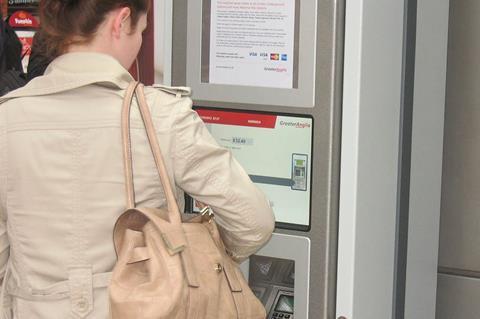
RMT trade union General Secretary Mick Lynch said ‘the arrangements for ticket office opening hours, set out in Schedule 17 of the Ticketing & Settlement Agreement, are the only statutory regulation of station staffing. It is crystal clear that the government and train companies want to tear up this agreement and pave the way for a massive de-staffing of the rail network.’
TSSA Interim General Secretary Peter Pendle said ‘what we are seeing today from the train companies — no doubt pushed by the government — is widespread plans for redundancies by the back door. This amounts to the shredding of the settlement we reached which ended our involvement in the national rail dispute and has left members furious.’
Labour’s Shadow Transport Secretary, Louise Haigh said that ‘railroading this decision through in just three weeks, without proper consideration for staff and vulnerable passengers, only risks exacerbating the managed decline of the rail network’.
Transport for the North said ‘we are concerned that the focus on ticket office staffing in isolation of wider investment (for example pay as you go ticketing) could lead to disadvantaging certain passengers and communities. We will be working with our partners on a robust response to the consultation using local evidence and knowledge.’
Jason Prince, Director of the Urban Transport Group, said ‘while we are not opposed in principle to changes to the way that customer service is provided at stations, we would ask for train operating companies to fully consult with our member transport authorities, and provide assurances that the plans will not lead to de-staffing of stations that undermine access to the railway for people with disabilities and increase actual and perceived fears for personal safety on and around the railway.’
Transport Focus CEO Anthony Smith said ‘it is important for people to have their say. We urge passengers to look at the proposals and tell us what the ticket office changes might mean for them. Transport Focus will make sure passengers’ views are heard.’
A strong reaction to the proposals is expected to come from disability groups, particularly those representing blind passengers who already report poor levels of information.
RDG says ‘the reforms will not affect train companies’ ability to provide assistance to those needing wheelchair and mobility support from staff, either on-demand at the station or by booking in advance. New mobile assistance teams will be created to offer extra help where needed, including for stations which are currently unstaffed.’



